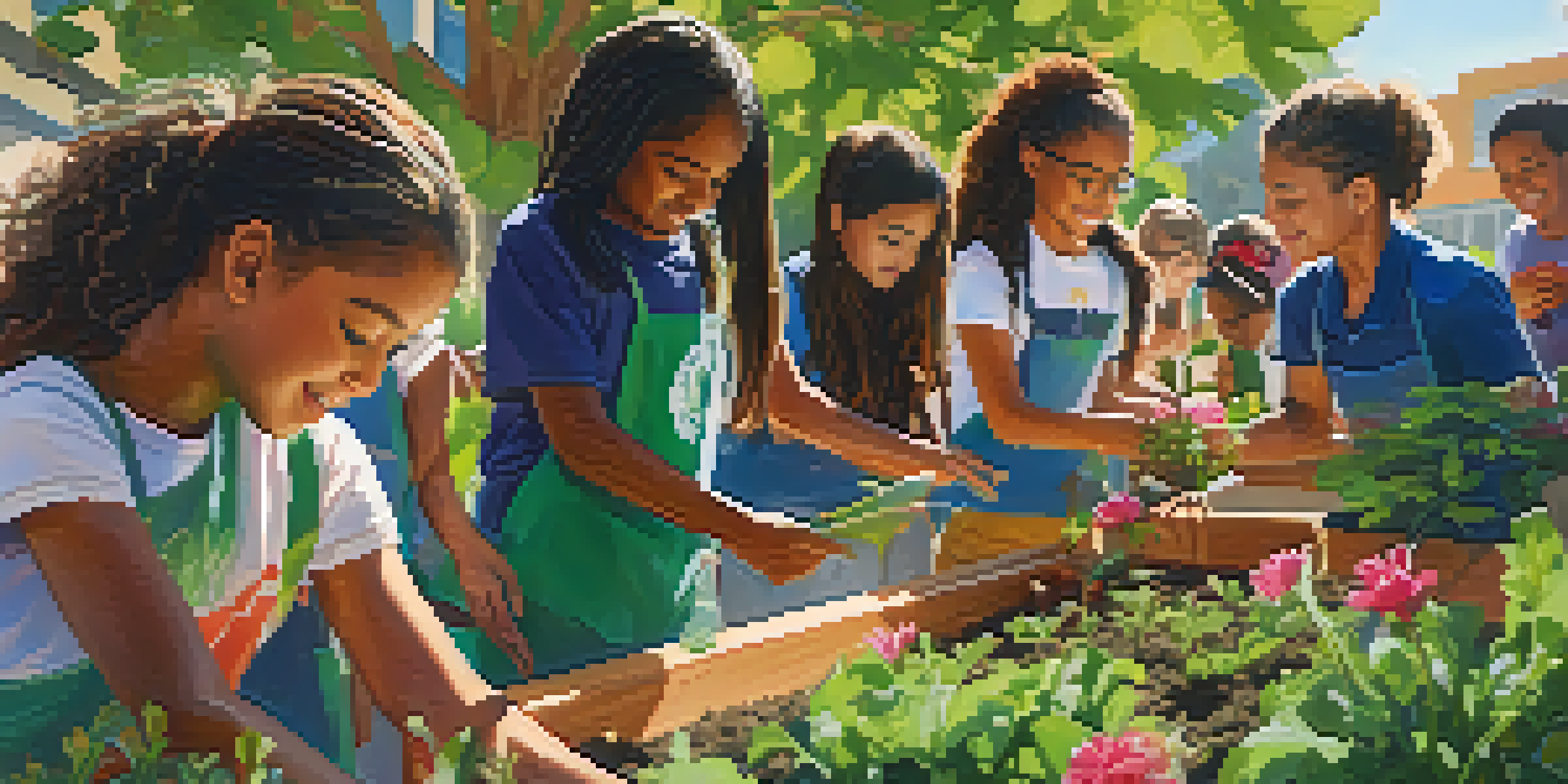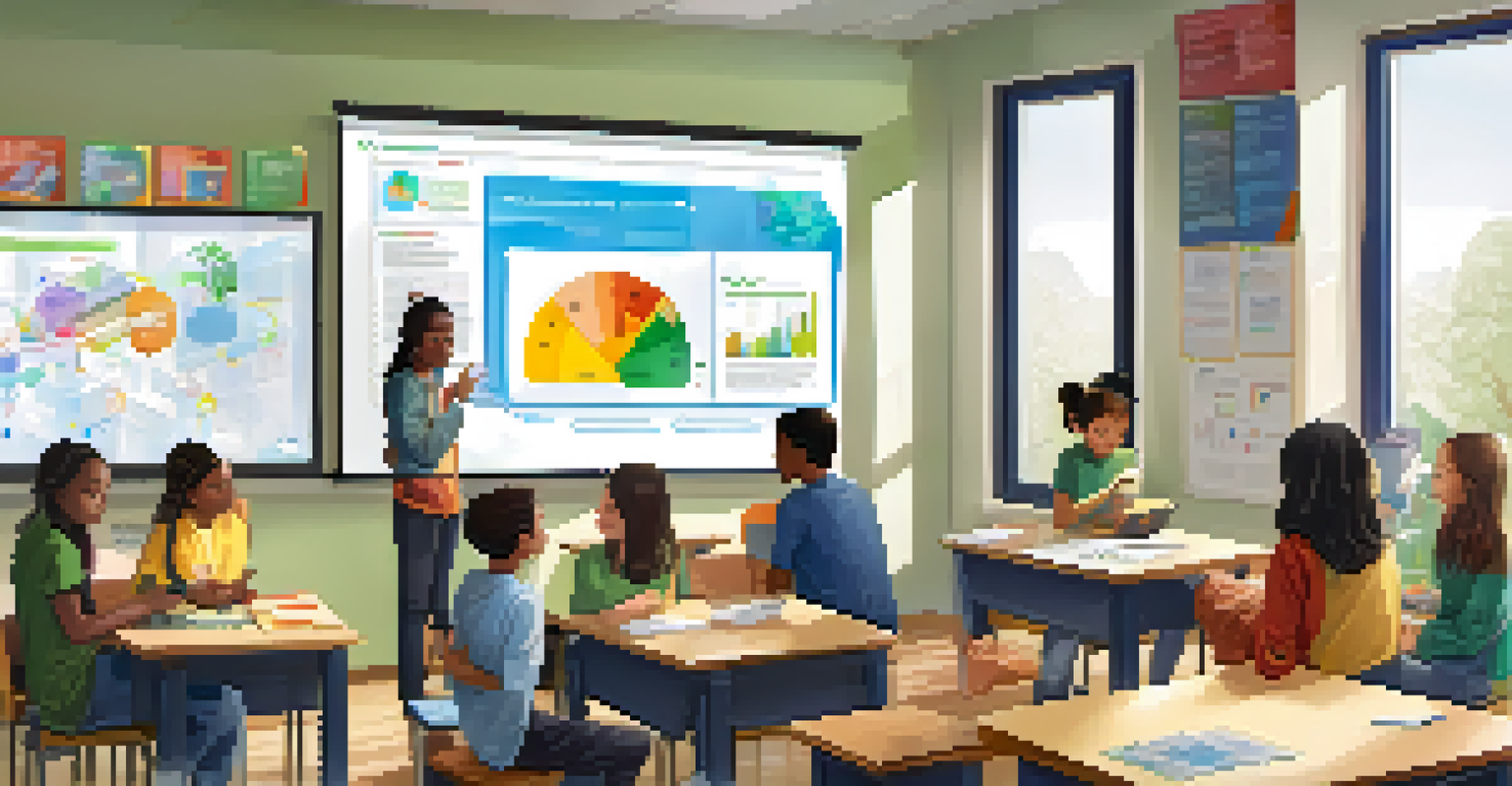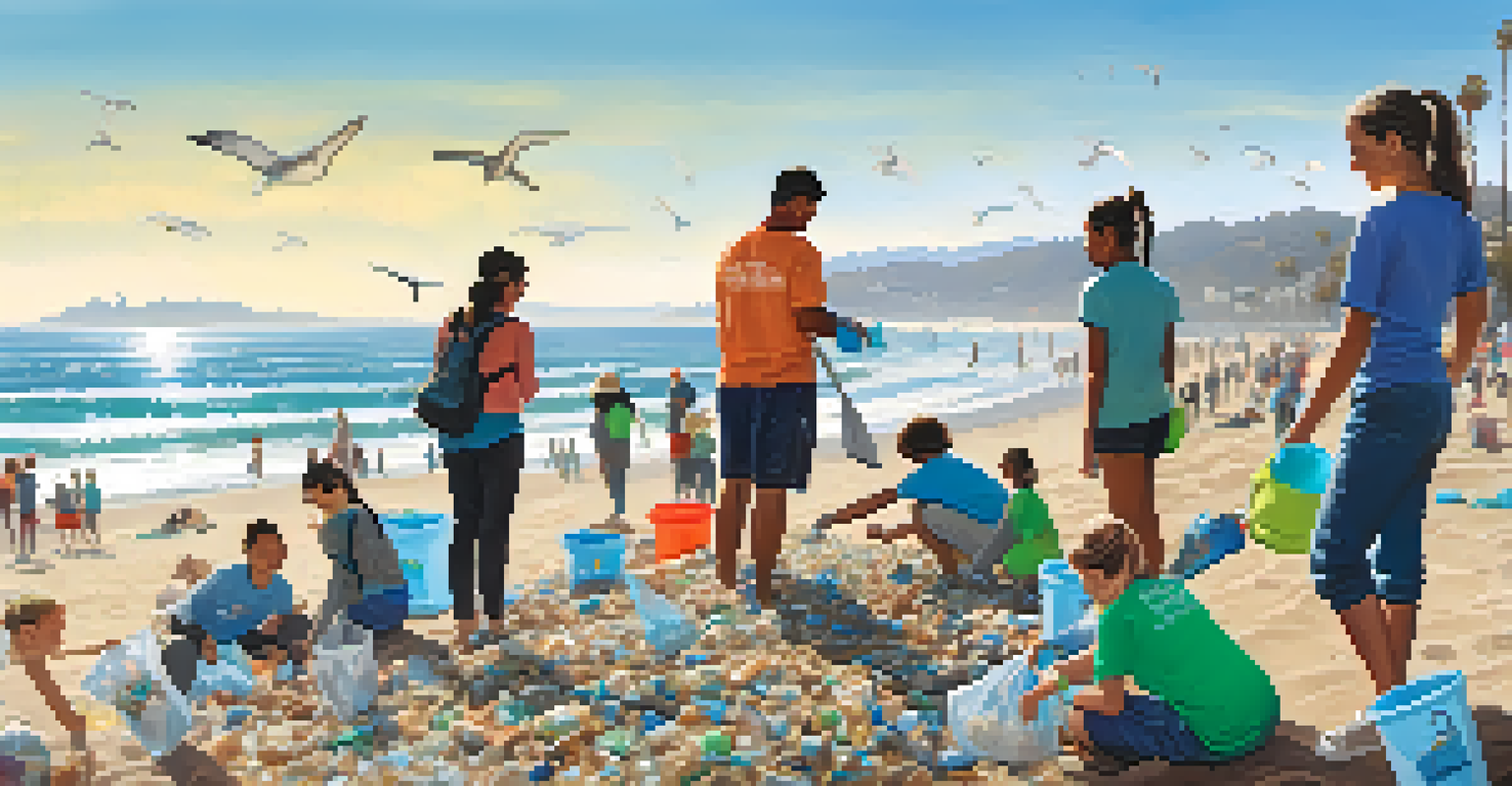Sustainability Workshops for Students in Santa Monica Schools

Understanding the Importance of Sustainability Education
In today’s world, sustainability education is crucial for students, as it equips them with the knowledge to tackle pressing environmental issues. Schools in Santa Monica recognize this need and are implementing workshops that focus on sustainable practices. These programs not only educate students about environmental stewardship but also inspire them to take action in their own communities.
The greatest danger in times of turbulence is not the turbulence; it is to act with yesterday's logic.
By learning about sustainability, students develop critical thinking skills and a deeper understanding of how their choices impact the planet. They are encouraged to think creatively about solutions, fostering a sense of responsibility towards the environment. This shift in perspective is vital, as it shapes the next generation of eco-conscious leaders.
Moreover, integrating sustainability into the curriculum helps students connect academic concepts to real-world applications. For instance, they might explore renewable energy sources or waste reduction strategies, making the lessons both engaging and relevant. This hands-on approach is key to making sustainability an integral part of their education.
Overview of Local Sustainability Workshops
Santa Monica schools offer a variety of sustainability workshops that cater to different age groups and interests. These workshops cover a range of topics, from organic gardening and recycling to renewable energy and conservation efforts. By providing diverse options, schools can engage students with varying interests and expertise levels.

Many workshops are led by local experts and organizations, ensuring that students receive up-to-date information and practical skills. For example, students might learn from environmental scientists about the importance of biodiversity or participate in hands-on activities like building compost bins. This experiential learning reinforces their understanding of sustainability concepts.
Sustainability Education Empowers Youth
Sustainability education equips students with the knowledge and skills to tackle environmental issues and inspires them to take action in their communities.
Additionally, these workshops often incorporate community involvement, encouraging students to collaborate with their peers and local organizations. This teamwork not only enhances their learning experience but also fosters a sense of community and shared responsibility. Students leave the workshops feeling empowered to make a difference.
Benefits of Participating in Sustainability Workshops
Participating in sustainability workshops offers numerous benefits for students beyond just academic knowledge. It allows them to develop practical skills that are applicable in everyday life, such as gardening, recycling, and conserving energy. These skills can significantly impact their families and communities, promoting a culture of sustainability.
We do not inherit the earth from our ancestors; we borrow it from our children.
Moreover, workshops often encourage teamwork and collaboration, helping students build essential social skills. Working together on projects fosters communication and problem-solving abilities, which are valuable in both academic and professional settings. These experiences can enhance their resumes and prepare them for future careers.
Another vital benefit is the boost to students' self-esteem and confidence. As they learn about sustainability and take on projects, they realize that they can make a positive impact on the environment. This newfound confidence can inspire them to pursue further education and careers in environmental fields.
Hands-On Learning Experiences in Santa Monica
One of the standout features of sustainability workshops in Santa Monica is their hands-on approach. Students engage in practical activities that allow them to apply what they've learned in real-world settings. For example, they might plant trees in local parks or participate in beach clean-up events, directly contributing to their community.
These hands-on experiences not only reinforce academic lessons but also make learning more enjoyable and memorable. When students see the tangible results of their efforts, such as a cleaner beach or a thriving garden, they feel a sense of accomplishment. This connection between action and outcome is crucial for fostering long-term commitment to sustainability.
Hands-On Workshops Enhance Learning
Hands-on sustainability workshops help students apply their knowledge through practical activities, reinforcing lessons and fostering a commitment to environmental stewardship.
Additionally, these activities often spark students' interest in environmental careers. As they experience the satisfaction of making a difference, they may be inspired to pursue further education in fields like environmental science, conservation, or sustainable design. This early exposure can have a lasting impact on their career choices.
Community Involvement and Collaboration
Sustainability workshops thrive on community involvement, bringing together students, educators, and local organizations. Collaborating with community partners not only enriches the workshops but also strengthens the bond between schools and the community. This partnership creates a supportive environment for students to learn and engage with sustainability.
Local organizations often contribute resources, expertise, and volunteers, enhancing the quality of the workshops. For instance, a local environmental group might provide materials for a recycling project or host guest speakers who share their experiences in sustainability. This collaboration creates a network of support that benefits everyone involved.
Furthermore, community involvement allows students to see the broader impact of their actions. By engaging with local initiatives, they understand how individual efforts contribute to collective goals. This sense of community fosters a deeper commitment to sustainability, encouraging students to become lifelong advocates for the environment.
Incorporating Technology in Sustainability Education
Technology plays a significant role in enhancing sustainability workshops in Santa Monica schools. Educators are leveraging digital tools to create engaging and interactive learning experiences. For instance, students might use apps to track their energy consumption or participate in virtual simulations of environmental scenarios.
Incorporating technology not only makes learning more dynamic but also prepares students for a tech-driven world. Understanding how to use technology for sustainability is a valuable skill that can open doors to future opportunities. Students learn to analyze data and make informed decisions based on their findings.
Community Collaboration is Key
Involving local organizations in sustainability workshops strengthens community ties and enriches students' learning experiences, highlighting the collective impact of individual efforts.
Moreover, technology facilitates collaboration and communication among students. They can work on projects remotely, sharing ideas and resources through online platforms. This flexibility allows for a more inclusive learning environment, where students can collaborate regardless of their physical location.
Future of Sustainability Workshops in Santa Monica
The future of sustainability workshops in Santa Monica looks promising, with ongoing efforts to expand and innovate these programs. Schools are continuously exploring new topics and activities to keep students engaged and excited about sustainability. This commitment to improvement ensures that students receive a relevant and impactful education.
There is also a push to integrate sustainability education into the broader curriculum, reinforcing its importance across subjects. By making sustainability a core component of education, schools can instill a culture of environmental responsibility among students of all ages. This holistic approach fosters a deeper understanding of the interconnectedness of social, economic, and environmental issues.

Ultimately, the goal is to empower students to become informed, active participants in their communities. By equipping them with the tools and knowledge they need, Santa Monica schools are nurturing the next generation of sustainability leaders. With continued support and innovation, these workshops will have a lasting impact on students and their communities.